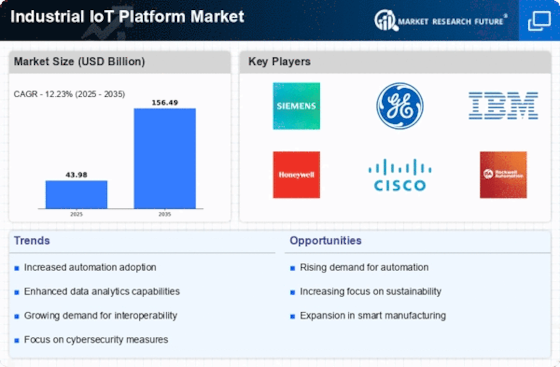Market Trends
Key Emerging Trends in the Industrial IoT Platform Market
Industrial IoT platforms act as the establishment for associating industrial gadgets, sensors, machines, and control frameworks to accumulate, dissect, and follow up on constant information, driving the industrial settings. This market is seeing a flood popular because of the rising reception of IoT arrangements across assembling, energy, transportation, medical services, and other industrial areas to drive development, further develop efficiency, and improve resource execution.
As industrial conditions send a different exhibit of gear, conventions, and legacy frameworks, there is a developing requirement for IoT platforms to help consistent incorporation and communication among unique gadgets and frameworks. This pattern is driving the improvement of interoperable industrial IoT platforms that stick to industry norms, conventions, and open-source structures, empowering attachment and-play network, information trade, and interoperability across varied industrial biological systems. Additionally, the coordination of edge registering and edge investigation capacities is reshaping the market elements. One more key pattern in the industrial IoT platform market is the emphasis on industrial network protection and flexibility. As industrial IoT arrangements increase the attack surface and network safety risks, IoT platform suppliers are upgrading security highlights, encryption, access controls, and danger discovery capacities to safeguard industrial resources, information, and tasks from digital dangers and weaknesses. This pattern is driving the improvement of secure and strong industrial IoT platforms that can moderate online protection gambles, guarantee information honesty, and protect industrial control frameworks and foundation from potential digital assaults.
Besides, the union of IoT platforms with computerized twin innovation is a remarkable pattern in the market. Computerized twin models, which make virtual reproductions of actual resources, frameworks, and cycles, are being incorporated with industrial IoT platforms to empower reenactment, perception, and examination for industrial resources and activities. This pattern is driving the advancement of IoT platforms that influence computerized twin innovation to empower virtual observing, accurate maintenance, and execution streamlining of industrial resources and cycles considering constant and authentic information.


















Leave a Comment